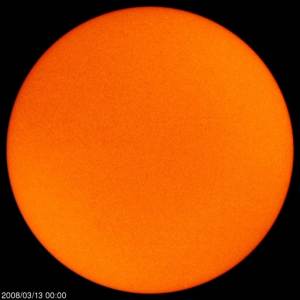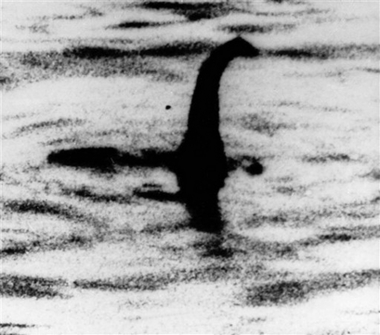They write these headlines without so much as a nod to their own absurdity – “The Mystery of Global Warming’s Missing Heat” (link fixed)
Some 3,000 scientific robots that are plying the ocean have sent home a puzzling message. These diving instruments suggest that the oceans have not warmed up at all over the past four or five years. That could mean global warming has taken a breather. Or it could mean scientists aren’t quite understanding what their robots are telling them.
This is puzzling in part because here on the surface of the Earth, the years since 2003 have been some of the hottest on record. But Josh Willis at NASA’s Jet Propulsion Laboratory says the oceans are what really matter when it comes to global warming.
In fact, 80 percent to 90 percent of global warming involves heating up ocean waters. They hold much more heat than the atmosphere can. So Willis has been studying the ocean with a fleet of robotic instruments called the Argo system. The buoys can dive 3,000 feet down and measure ocean temperature. Since the system was fully deployed in 2003, it has recorded no warming of the global oceans.
Now, watch the struggle to make the facts fit the narrative;
One possibility is that the sea has, in fact, warmed and expanded — and scientists are somehow misinterpreting the data from the diving buoys.
But if the aquatic robots are actually telling the right story, that raises a new question: Where is the extra heat all going?
Kevin Trenberth at the National Center for Atmospheric Research says it’s probably going back out into space. The Earth has a number of natural thermostats, including clouds, which can either trap heat and turn up the temperature, or reflect sunlight and help cool the planet.
That can’t be directly measured at the moment, however.
“Unfortunately, we don’t have adequate tracking of clouds to determine exactly what role they’ve been playing during this period,”
Trenberth says.It’s also possible that some of the heat has gone even deeper into the ocean, he says. Or it’s possible that scientists need to correct for some other feature of the planet they don’t know about. It’s an exciting time, though, with all this new data about global sea temperature, sea level and other features of climate.
“I suspect that we’ll able to put this together with a little bit more perspective and further analysis,” Trenberth says. “But what this does is highlight some of the issues and send people back to the drawing board.”
Kevin Trenberth has been mentioned here before – in this 2005 quote from a resigning Chris Landsea, citing IPPC misrepresentation of hurricane research;
It is beyond me why my colleagues would utilize the media to push an unsupported agenda that recent hurricane activity has been due to global warming. Given Dr. Trenberth’s role as the IPCC’s Lead Author responsible for preparing the text on hurricanes, his public statements so far outside of current scientific understanding led me to concern that it would be very difficult for the IPCC process to proceed objectively with regards to the assessment on hurricane activity.
Two years later, Trenberth was still using hurricane Katrina as evidence of global warming.










